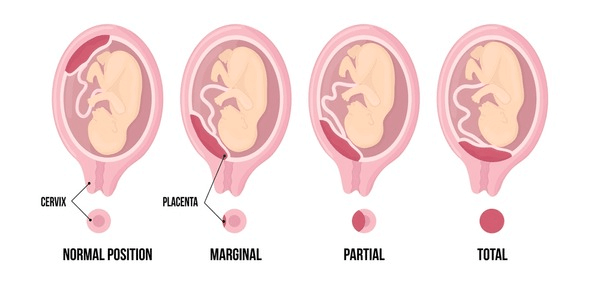Can Exercise Cause a Miscarriage? Debunking the Myths

Introduction
Pregnancy is a life-changing journey that comes with a mix of excitement and anxiety. Many expectant mothers wonder whether exercise could harm their pregnancy or even cause a miscarriage. This concern is fueled by myths, outdated beliefs, and misinformation. In this article, we’ll explore the link between exercise and miscarriage, debunk common myths, and share safe ways to stay active while pregnant.
What Is a Miscarriage?
Definition
A miscarriage is the loss of a pregnancy before the 20th week. It can occur for various reasons, most commonly due to chromosomal abnormalities that prevent the fetus from developing properly.
Common Causes of Miscarriage
- Genetic Issues (Chromosomal Abnormalities)
- Maternal Health Conditions (Diabetes, High Blood Pressure)
- Hormonal Imbalances
- Lifestyle Factors (Smoking, Drug Use)
Misconceptions About Miscarriage
One of the most persistent myths is that moderate exercise can cause pregnancy loss. However, modern research has proven that in healthy pregnancies, exercise is generally safe and even beneficial.
Exercise and Pregnancy: A Balanced Approach
Recommended Activity Levels
According to the American College of Obstetricians and Gynecologists (ACOG), pregnant women should aim for 150 minutes of moderate-intensity exercise per week, spread across several days.
Pregnancy-Safe Exercises
- Walking: Low-impact and suitable for all trimesters.
- Swimming: Supports the body and reduces joint strain.
- Prenatal Yoga: Eases tension and enhances flexibility.
- Strength Training: Helps maintain muscle tone when done with light weights.
Debunking the Myths: Exercise and Miscarriage
Scientific Evidence
Research consistently shows that moderate exercise does not increase the risk of miscarriage. In fact, staying active can reduce pregnancy complications like gestational diabetes, preeclampsia, and excessive weight gain.
Medical Opinions
Doctors agree that exercise is safe as long as it’s adapted to the mother’s fitness level and pregnancy stage. However, high-risk pregnancies may require modified or reduced activity.
Common Misunderstandings
- Myth: Exercise can detach the placenta.
- Fact: No scientific evidence supports this claim. The placenta is well-protected.
- Myth: Jumping or running causes pregnancy loss.
- Fact: Moderate jogging or running is safe for experienced runners with a doctor’s approval.
Safe Exercises During Pregnancy
- Walking: Gentle on joints and easy to fit into daily routines.
- Swimming: Provides a full-body workout without stressing the joints.
- Prenatal Yoga: Supports flexibility and mental well-being.
- Strength Training: Use light weights for muscle tone.
- Stationary Cycling: Great for cardio while reducing fall risks.
Exercises to Avoid During Pregnancy
While exercise is generally safe, some activities should be avoided:
- High-Impact Sports: Basketball, soccer, and skiing.
- Contact Sports: Any sport with a risk of being hit.
- Intense Cardio or HIIT: Avoid activities with rapid changes in direction.
- Scuba Diving: Can cause decompression issues harmful to the baby.
Benefits of Exercising While Pregnant
- Improved Mood: Exercise releases endorphins, boosting mental health.
- Better Sleep: Physical activity promotes deeper, more restful sleep.
- Reduced Pregnancy Complications: Less risk of gestational diabetes and high blood pressure.
Risk Factors Unrelated to Exercise
It’s crucial to understand that most miscarriages are due to factors unrelated to exercise, including:
- Chromosomal Abnormalities: The leading cause of pregnancy loss.
- Medical Conditions: Conditions like thyroid disorders or autoimmune diseases.
- Lifestyle Choices: Smoking, drug use, or extreme stress.
For a detailed guide on managing pregnancy symptoms, read this First-Trimester Survival Guide.
Signs You Should Stop Exercising
If you experience any of the following, stop exercising and consult your doctor:
- Vaginal bleeding or spotting
- Severe abdominal pain or cramping
- Dizziness or lightheadedness
- Shortness of breath before starting exercise
How to Start a Safe Exercise Routine
- Consult a Doctor: Get medical approval, especially for high-risk pregnancies.
- Create a Plan: Stick to low-impact activities.
- Join Prenatal Classes: These offer guided, safe workouts tailored to pregnancy.
FAQs About Exercise and Miscarriage
1. Can I exercise during the first trimester?
Yes! Light activities like walking and yoga are highly recommended.
2. Is it safe to lift weights?
Yes, if you use light weights and maintain proper form. Avoid heavy lifting.
3. Can running cause a miscarriage?
Not for experienced runners with a doctor’s clearance. Modify intensity if needed.
4. Should I stop exercising if I feel tired?
Listen to your body. Rest when needed, especially during the first trimester.
5. How long can I keep exercising while pregnant?
As long as your doctor approves and you feel comfortable. Adjust intensity as your pregnancy progresses.
Conclusion
Exercise during pregnancy is safe, beneficial, and even recommended when done correctly. Debunking the myths surrounding miscarriage and exercise can help expectant mothers stay active with confidence. Always consult your healthcare provider before starting or modifying your fitness routine.






